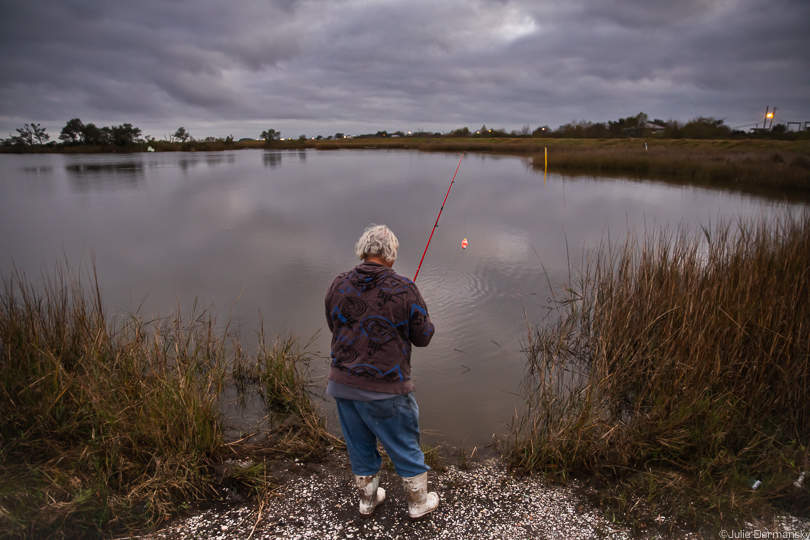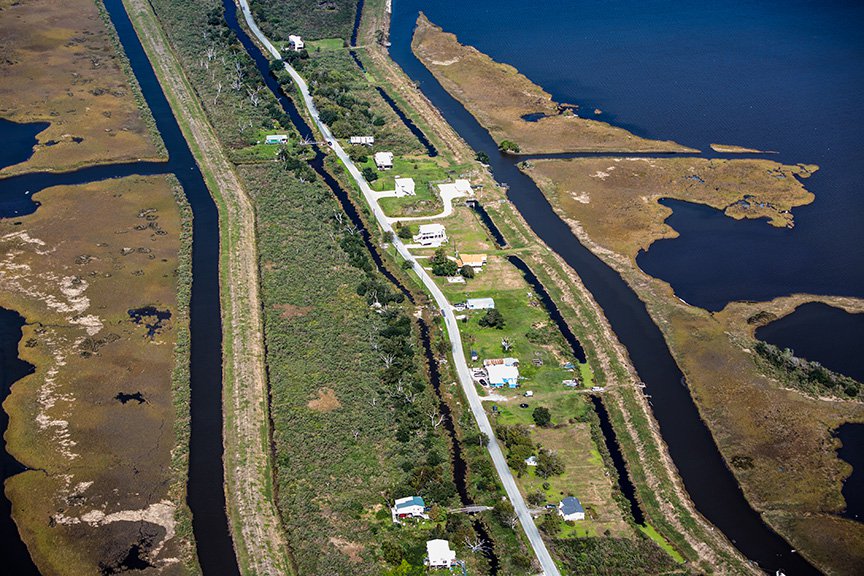
After DeSmog broke the news that the Isle de Jean Charles Biloxi-Chitimacha-Choctaw Tribe (IDJC) was considering ending its partnership in a $48 million climate change resettlement project, talks have restarted between the Louisiana Office of Community Development (OCD) and the Tribe in an attempt to fix the rift.
On January 24, Pat Forbes, executive director of the OCD, met with IDJC Chief Albert Naquin and local officials. “The door is back open to find common ground,” Chief Naquin told me after the meeting.
At stake is the success of the first federally funded resettlement project meant as a template for coastal communities facing rising sea levels from climate change.
Isle de Jean Charles, home of the IDJC Tribe, is a narrow island in the wetlands of south Terrebonne Parish, Louisiana, about 80 miles southwest of New Orleans. Since 1955, the island has lost 98 percent of its land due to a combination of levee construction, coastal erosion, sinking land, rising seas, and damage from hurricanes, worsened by climate change. Only a 320-acre strip remains today, and the population has fallen from 400 to a few dozen families.

A Vision for the Future of the IDJC Tribe
Over a decade ago the IDJC Tribal Council began creating a resettlement plan that aimed to move the Tribe inland and reunite displaced members who had moved away over the years. Working with the Lowlander Center, a nonprofit with a long-standing relationship with the Tribe and connected to scientists, researchers, and planners dealing with coastal issues, the Tribe developed this plan as a road map for other coastal communities inevitably facing relocation due to climate change.
The plan covers issues such as energy…







